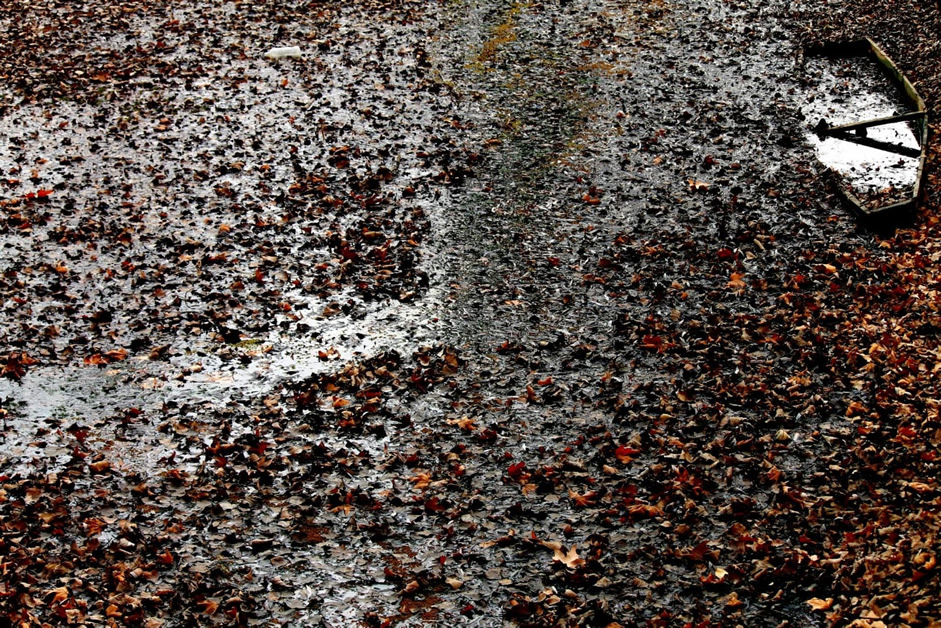Written on March 24, 1977 in Buenos Aires, this letter “can be useful to readers to reflect on the new despotisms.” This letter and the attached piece were originally published by Arturo Desimone on December 6, 2016, under the title of “Reading the Argentinian resistance writer Rodolfo Walsh in the Times of Trump” and is republished here from Open Democracy via CC BY-NC 4.0

Wandering Through the Alleys and Making Sense of Central and West Asian Remnants in Srinagar — by Subhajit Pal
Relying on research and interview material gathered during his stay in Srinagar, Subhajit Pal discusses Kashmir’s historical connection to Central and West Asia as it manifests in contemporary times.

Home Archaeology — by Rela Mazali
A Jewish activist woman from Israel conducts an “archaeological dig” into her immediate physical surroundings and the sites of her successive homes. It recounts her slow unlearning of Zionist erasures both of the dispossession of Palestinians previously living at these sites and of the discrimination against and relegation into poverty of Mizrachi Jews (Jews of color) sent to live at them.
A gradual awakening to an unblinkered understanding of the context – historical, social, economic of where she lives, this fragment opens a window onto the reality that is (again) erupting in horrific violence in Palestine Israel today, in the spring of 2021.
The text is the 5th section of the novella-length essaytale, “Home Archaeology”, originally published in full in Hebrew in the collection “Home Archaeology: Essay Tales” and re-rendered into English by the author. This piece will appear in print at a later time in a three-part series to be published by the author.

Jaun Elia: The Garbage Dump of History — Translated and Introduced by Muzaffar Karim
Academic and writer Muzaffar Karim translates and introduces Jaun Elia’s “The Garbage Dump of History,” a piece originally titled “Jannat Jahanam” in Urdu that appeared in Suspense Digest (July 2000). Karim’s introduction and subsequent translation situate international readers beyond Elia’s widely known poetic and academic work, bringing us closer to Elia’s thoughts on Kashmir before, during and after partition. In the process, Karim’s translation reveals a deep sense of empathy, expressed as irredeemable angst that the poet, scholar and philosopher felt for Kashmir and its people, and particularly its disenfranchised Muslim majority. By way of translation, Muzaffar Karim retrieves a piece of writing that serves as a relic or a historical document to register the desperation, angst and nihilism that has festered for decades as Kashmir has remained besieged and exiled from any semblance of peace. That that desperation and angst is expressed by Elia via this translation by Karim makes it even more symbolic of the hostile and unchanging times.

Reporting News and Psychology — by Amir Sultan
As a researcher in Psychology, Amir Sultan writes about relevant concepts and terms developed in his field through academic research done on two particular cases of cold-blooded murder. The piece offers interesting observations about studies in Psychology that relate to the world of news reporting. Some of the events discussed and referenced via hyperlink to their direct sources are of a violent nature. Reader and viewer discretion is advised for those sensitive to such events covered widely in the news.

A Sketch of Rose Apples and Cats During Covid-19 Lockdown — by Saima Afreen
Under Covid-19 confinement, Saima Afreen presents a non-fiction piece written in a literary style that allows the writer to venture far beyond the subjects of its title, into an introspective engagement with her experiences and memories to the greater visions before her, in a ‘mind state’ of lockdown that is relatable to many yet communicable by few. The writer provides articulations that oscillate between poetic imagery and literary prose to shape an experience of preventive pandemic lockdown from the Indian cosmopolis, traversing into a territory outside of solitude and well past the quarantined self.
Negative Female Portrayals in the Folktales of the Raantas, the Kikimora and the Banshee — by Aadil Hussain
Aadil Hussain problematizes the portrayal of sinister and fear-inducing female figures in traditional folktales from multiple cultures, starting with his own.
10 Must-Read Essays on Kashmir by Gautam Navlakha — curated by Majid Maqbool
Majid Maqbool curates a list of 10 must-read essays on Kashmir by Gautam Navlakha, taken from a larger body of work that spans decades of Gautam’s engagement with Kashmir. The curated list includes a general introduction by Majid and a summary and preview for each of the pieces linking back to the original sources where these writings were published. Inverse Journal has also provided relevant links (at the end of this curated list) directly embedded from Indian and international organizations in view of recent events pertaining to Gautam Navlakha’s detention at this vulnerable time during the ongoing COVID-19 pandemic.
Unbounded Wounds: Memories of a Family Massacre – by Muhammad Hanief
Six months before he was born, Muhammad Hanief’s maternal grandparents and two maternal uncles were murdered by a group comprising of two Ikhwanis (counter-insurgent renegades) and two BSF (Border Security Force) troopers. The case was finally resolved in the courts in 2009, with the perpetrators sentenced to life in prison. Given the sensitivity and horrific details of the case, written permission was sought for the publication of this account from the family of the writer. All of the particulars provided in this account, including details pertinent to the case, are available in the public domain via a series of news reports of the event and further specified in the FIR filed by the family members of the victims. The author has compiled this account based on several years of conversation with his mother who has narrated it to him so that he may write it down for posterity.
Nāad: A Call in Waiting — by Bushra Punjabi
A stranger in a strange land, Bushra Punjabi reflects on the condition of being away from home and at home within the confines of memory. In such a mode, she reflects on what it means to be Kashmiri in an uncertain present, between an imposing past and an impending future. In this quagmire of time, the writer and sociology researcher retrieves a sense of being Kashmiri, contemplating her belonging to a troubled Kashmir and her longing for a Kashmir free from tyranny.
Letters to a Dead Father — Two and Three — by Peerzada Sheikh Muzamil
When Peerzada Sheikh Muzamil was eight years old, his father was shot by unidentified gunmen. Twelve days after the attack, on 15th February 2005, the young writer’s father succumbed to his injuries in Sheri Kashmir Institute of Medical Sciences, Srinagar. To liberate memory from trauma, these letters are an attempt by the writer to engage with his childhood and confront his tragic loss at a vulnerable age. This February 15th marks the 15th year since his father’s tragic death. We present two such letters from an entire series out of which some were published first by Mountain Ink Magazine.
You Have the Right to Remain Silent — by Sheikh Saqib
Sheikh Saqib arrives in New Delhi to work on his writing projects and communicate through the internet while making severe adjustments to continue with the pursuit of his education as an undergraduate student. In the process, he brings us this piece that narrates what young Kashmiris in Delhi have been experiencing through the communications blockade that has kept families apart and out of touch. The piece reflects the initial two months of the ongoing Indian siege on Kashmir, offering concrete examples of what it means when phone and internet services are deactivated by those in power and how such limitations cause severe loss, distress, and anxiety.







